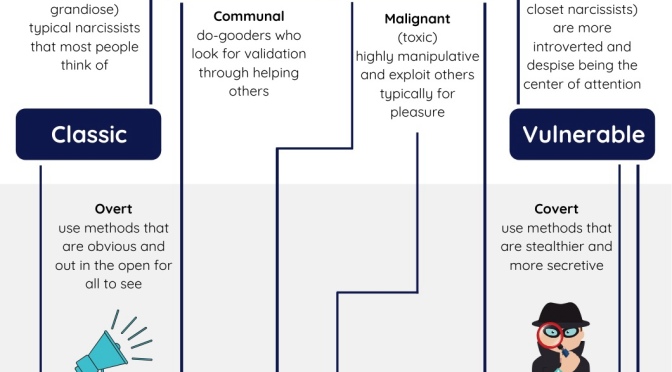What is the value of talking therapy? How does it differ from a conversation with a friend? Does it actually work? And, more to the point, ‘Would it work for me?’ If you have been asking yourself these questions, read on to find out about what talking therapy can offer.
Have you watched those movie scenes in which the therapist is depicted as a detached listener who nods and makes vague noises while the attractive lead speaks? If so, you may feel sceptical about the value of talking therapy. These days, there are many different psychological therapies available, and this may give you the impression that talking therapy is outdated.
What you may not know, is that talking therapy draws upon some of the most sophisticated social processes that take place in human interaction. Its positive effects are supported by neuroscience, that is, the study of how the brain works. Here are seven benefits of talking therapy.
In this article, the word therapist is interchangeable with counsellor and psychotherapist, who may all provide talking therapy. Find out more about the types of mental health professionals.
1. Attunement: The experience of being heard
We all know that it’s so much easier to talk when someone shows a genuine interest in what we have to say. In therapy, you will have your therapist’s full attention. This can be a healing experience in itself. In a research study, some people reported that they had never been listened to in this way before (Weger, 2014).
Attunement, the experience of having someone ‘tune in’ to us, creates a process of limbic resonance in the brain, whereby two people’s emotional states match each other. This creates the lovely feeling of being seen, heard and understood.
Parental attunement is an important factor in children’s emotional development and sense of self. If you lacked sufficient experiences of being attuned to in childhood, talking therapy can provide a reparative experience in this respect, with far-reaching positive psychological effects.
2. Mentalisation: Reflecting together
Even though your therapist is an attentive listener, talking therapy is not a one-sided affair where you do all the talking. He or she will engage with you and encourage you to reflect on the things you share. It’s like having a supportive, thinking mind alongside your own to help you articulate and make sense of your thoughts and feelings.
Your therapist might ask questions like “How did that feel?” or “How did it impact you?” Reflecting together in this way increases our capacity for mentalisation.
Mentalisation, the skill of understanding our inner experience, helps create emotional resilience. Young children lack mentalisation skills (hello, tantrums!). These skills are picked up through a joint process of reflecting together with an adult, who can adequately name the child’s ‘big feelings’ and help soothe them. In time, the child learns to understand and manage their feelings on their own.
In the past, less was known about children’s emotional needs and not all of us have had a chance to learn robust mentalisation skills. The good news is that it’s never too late!
When we become familiar with our emotional states and know how to manage them, they do not overwhelm us. Instead, we can allow our feelings to help us think about what we need. This allows us to develop self-compassion and find resources for support and self-care.
3. Enrichment for the brain
Part of talking therapy involves processing our feelings around a memory or personal story. We may explore a lived experience from different perspectives, and perhaps imagine new possibilities for ourselves.
Each thought creates new connections in the brain, known as neural pathways. Talking therapy provides plenty of opportunities for these new connections to strengthen. Over time, this process of neural integration facilitates change.
Louis Cozolino (2017, p. 22) writes: “Psychotherapy can be thought of as a specific type of enriched environment that promotes social and emotional development, neural integration, and processing complexity.” Some therapists use creative methods in their work, which further increases opportunities for enrichment.
Reflective activities such as journaling in between sessions can further deepen the reflective process, strengthen the new brain pathways and consolidate new habits and insights.
4. Validation and containment: The power of words
Words are powerful. Saying something out loud is different from thinking about it in our heads. When we say it out loud, we can hear it in a different way. Sharing our story with another person gives it shape and makes it more real: now, we both know what happened.
Having a personal experience witnessed in therapy in this way is validating and can be an important part of the process of letting go of shame or grief.
The words received in response can be equally powerful. Simple empathic statements may be: “That was really hard for you. You’ve carried this pain for a long time.” Such words of support create containment, the experience of being held through the emotional support of another, as if by an invisible structure, as we work through our experience.
Finally, naming our feelings can put them on the emotional map, metaphorically speaking. Thus, this can turn them from free-floating anxiety into something we can know and understand. As we have seen, interpreting our inner experience through mentalisation can make our feelings less scary. From there, it becomes easier to navigate – just like having a map!
5. Calming the stress response
Recall a time when you felt criticised or humiliated and how that felt in your body. Did you get a rush of heat to your face, or a sense of shrinking inwardly? Now recall a time when someone spoke kindly to you. How did that feel?
When we are criticised, the brain activates our stress response. By contrast, a kind tone of voice has a calming effect on our nervous system.
Verbal communication is directly connected to our physical experience. Human brains are designed to notice subtleties in tone of voice, in order to determine threat or safety.
When we feel seen, heard and understood (attunement, remember?), we begin to relax as the signals in our brain communicate a sense of safety to the whole organism. This settles the stress-driven fight-flight system and activates the body’s social engagement system instead. Therapy can be a safe space to talk about our emotional experience, which can ultimately help us heal.
6. Seeing the bigger picture
Imagine standing at the top of a mountain, with a full view of the landscape below. Exploring our life story in therapy can be a bit like climbing a mountain. On the way up, you can only see so far.
Sometimes, we have only diffuse recollections of certain periods or events in our lives. Perhaps at the time, we just tried to pull through. While this need not be a problem, the downside is that such events sometimes continue to affect us, by shaping our beliefs about ourselves, others, and how we relate to people and situations in general.
Talking therapy can help us see the bigger picture. We can place important events in context, and make links between past and present. Gaining insight and awareness into our life experiences is a bit like sorting images into a logical order. In therapeutic language, this is known as creating a ‘coherent narrative’. Of course, this also helps us appreciate how far we’ve come!
7. A different type of relationship
You may not always feel comfortable talking to those closest to you about what you’re going through. No matter how much they care, it’s difficult to see a loved one suffer, and it can be difficult for people to know what to say.
Therapy is different from talking to family or friends because there is no mutual exchange of personal information. This may feel strange at first. It is normal to think about your therapist’s well-being; you may worry that you’re burdening them or fear that your problems are ‘too much.’ But it can also be a great relief to know that therapy is a space just for you.
Over time, you will get to know your therapist in a different way. You may discover that the connection that you have with them is an important part of what makes therapy helpful – this is precisely what research has found (Carey et al, 2012).
In conclusion, talking therapy can have far-reaching beneficial effects on our emotional experience, brain chemistry, and overall life story.
This article was written to provide an insight into some of the benefits of talking therapy. Talking therapy may not be the best option for everyone. If you’re unsure, it can be good to talk to a few professionals, to find the type of therapy that will suit you best.
References:
Carey, T., Kelly, R., Mansell, W., and Tai, S. (2012). What’s Therapeutic About the Therapeutic Relationship? A hypothesis for practice informed by Perceptual Control Theory. The Cognitive Behaviour Therapist, 5 (2-3).
Cozolino, L. (2017). The Neuros
— Read on www.counselling-directory.org.uk/memberarticles/7-hidden-benefits-of-talking-therapy






 bible.com/bible/111/1co.15.33.NIV
bible.com/bible/111/1co.15.33.NIV
 bible.com/bible/392/psa.32.5.CEV
bible.com/bible/392/psa.32.5.CEV